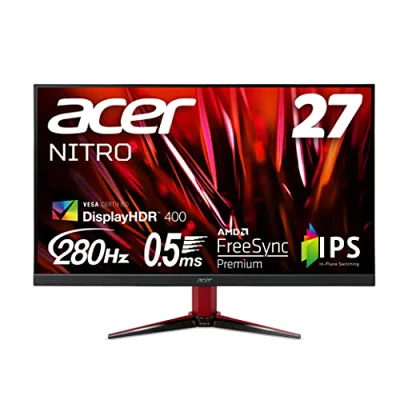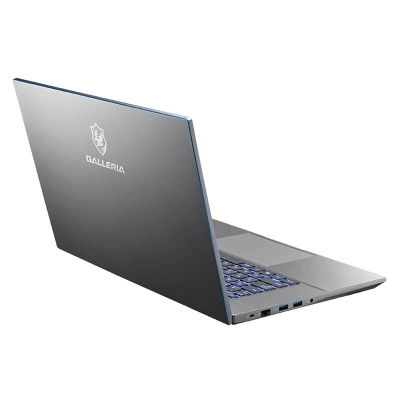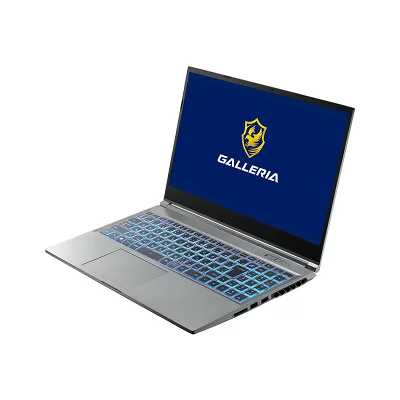- What is a Gaming PC?
- Points to consider when choosing a gaming PC
What is a Gaming PC?
A gaming PC is a high-performance computer designed primarily for playing games.
Of course, since it's a computer, you can use it for more than just games: searching in the browser and viewing documents using Excel, etc.
Why high performance is essential
Some people may wonder if it is possible to play games on a regular PC, but when playing games, the computer puts a lot of strain on the graphics processing and other aspects of the system, and high performance is required to handle that.
If the performance is insufficient, problems such as slow operation and software sudden crashes may occur.
Points to consider when choosing a gaming PC
Either a desktop or laptop
There are desktop computers, where the computer itself and the display are separate, and laptop computers, where the computer itself and the display are integrated, and the same is true for gaming PCs.
Check out the features of each and choose the one that suits you best.
Desktop PC Features
Desktop PCs are generally not suitable for portability, as they are large and quite heavy.
The advantages include the fact that you can easily customize it yourself later if you want to improve its performance, and because it does not have a battery, it has a long lifespan.
If you only play games at home, I think you'd be better off with a desktop PC.

Features of Notebook PCs
Laptops have the advantage of having an integrated display for easy portability and being lightweight.
This is recommended for people who want to use their PC on the go, such as in a hotel, or for people who travel frequently for work and find it difficult to carry a desktop PC every time.
The disadvantages include not being able to customize it as much as a desktop PC, it being difficult to carry around once the battery has worn out, and the loud noise of the fans that spin at high speed to dissipate heat.
We also have articles about gaming laptops from famous manufacturers and brands, so please take a look at those as well.
・Dell's Alienware・ASUS ROG・Mouse's G-Tune

Check your CPU, GPU and memory
The better the performance of these three components - CPU, GPU, and memory - the better the performance of the computer. These are all points you should check if you are buying a computer.
About CPU
A CPU is a component that performs calculations and control. The most popular CPUs are Intel's "Core" and AMD's "Ryzen," so you should choose one of those.
However, in the case of Ryzen, there are rare cases where some software does not work well with it, so I think you can't go wrong by choosing Core.
About GPU
The GPU is a component required to create images and videos. A well-known one is NVIDIA's "GeForce." If you choose a GPU from this manufacturer, you'll be fine.
CPU and GPU numbers
Regarding CPUs and GPUs, each has a number attached to it, and generally the higher the number, the better the performance. It is also important to check these numbers when comparing the prices of two or more computers.
Memory Considerations
Unlike HDDs and SSDs, which store data for long periods of time, memory stores data temporarily and is used by the CPU when performing various processes, so it plays a very important role.
There are storage capacities of 4GB, 8GB, etc., but I think a gaming PC should have at least 16GB.
The larger the capacity, the smoother the operation will be, so if you have the budget, it might be a good idea to choose something a little larger.
When multiple programs are running at the same time, slow performance is often caused by a lack of memory.
If you have a small capacity such as 4GB, you may find that you run out of memory just by having the browser open, even if you are not playing games, so this is something you should check even when buying a computer for business use.
Don't forget the capacity of your SSD
SSDs are used to store data for long periods of time, such as saving images and videos or installing software.
The amount of storage space required varies depending on what data you plan to store and how much, so the amount of storage space required varies from person to person. If you have the budget, you should choose a storage space with a large capacity.
If you don't have that much room, I recommend buying an external device and transferring your image data to it when you run out of space.
Although it's not as important as components such as memory, it's a good idea to check in advance whether it has the capacity you think you'll need.
If you have a laptop, check the refresh rate etc.
If you are going for a laptop, check the display size and refresh rate. If the display is large, it will be heavy and difficult to fit in your backpack, so don't forget to check the size.
The higher the refresh rate, the smoother and clearer the image will be. To put it in perspective, a low refresh rate is like having fewer pages in a flip book, while a high refresh rate is like having more pages.
Choose a PC that exceeds the recommended specs for the game you want to play.
If you know what game you want to play, check the game's official website to see what specifications are recommended before you buy it.
If the specifications are not exceeded, the game may not function properly, may not even start, or may freeze mid-start even if it does start.
If you have the budget, I recommend buying something with higher specs than the recommended specs.
The recommended specs are merely the minimum required, so if you want to play more comfortably, choose a spec higher than the recommended specs.
Also, in rare cases, the recommended specs for online games may increase when an update is released. If you don't have a little margin in your specs, you may not be able to play properly after the update, so make sure you have some margin in your specs.
Lastly, price is the most important thing
Naturally, the higher the performance, the higher the price, but choose something that is not too expensive.







comment